Alumni Perspective: Peters
Learning flexibility, gaining confidence, making contacts
[[ PAGE BANNER: see the home page instructions for adding new images. Image should be 864 pixels wide by any height. ]]
An interview with Ulf Peters
Q
A
What do you value the most about having been part of TPCB?
I liked the program because you didn’t necessarily learn just one technique, it forced you to learn a lot of different things and to apply whatever technique works to solve a problem. Even when I didn’t know everything myself, I had classmates in different labs to talk to and get help from. It made me more flexible as a scientist. For me, personally, having all these techniques and broader knowledge taught me that I can tackle almost any problem. It helped me learn that if I have to take on something new scientifically, I can figure out how do it.
Q
A
How did doing your PhD thesis in the TPCB program help your career development?
In terms of networking, you aren’t just in one institution. You have a chance at TPCB to get to know people at three institutions at once and to use that professional network for references and to help you find jobs, whether it is a postdoc or later on. And obviously you also have the exposure to classmates you stay in touch with. In my class at TPCB there was a wide mix of people, and it was very enjoyable to have such a multicultural class.
Q
A
Did your time in TPCB help you decide what kind of professional life you wanted to pursue?
Even at the beginning, when you start out in the program, you don’t just experience one lab — you rotate in several labs in different institutions. You get a pretty good feel for how things are done in different institutions, how different they can be, and you can draw from these multiple perspectives in your future career. So, while you do your PhD work in one particular lab, you are exposed to a lot more in TPCB.
Q
A
Where did you go after receiving your PhD?
After my PhD thesis with Tarun Kapoor, I wanted to continue working in chemical biology and went to Kevan Shokat’s lab at UCSF for my postdoc. He values versatility and novel approaches, so with the great preparation from TPCB, I was able to tackle an
“undruggable” protein target successfully. With the help of structure-based design, we developed novel inhibitors and, continuing in the spirit of TPCB, I was able to learn X-ray crystallography as new technique along the way. I finished my postdoc last summer and started work at Wellspring Biosciences in San Diego, where I am now researching small-molecule inhibitors for oncology.



